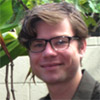 |
Frank O. Aylward
- Post-doc in DeLong’s lab
- University of Hawai‘i at Manoa (UH Manoa)
- Research interest: Aylward is focusing on the temporal community dynamics and physiology of planktonic microbial assemblages. He is using autonomous environmental sampling techniques and a combination of culture-independent methods.
- Keywords: temporal community dynamics, community interactions, bioinformatics, (meta)-genomics
- faylward@hawaii.edu
|
 |
Benedetto Barone
- Post-doc in Church’s lab
- University of Hawai‘i at Manoa (UH Manoa)
- Research interest: Barone is focused on the interaction between light and the planktonic community. He tries to characterize station ALOHA based on its biooptical properties including the attenuation of light at different wavelengths, the photophysiological properties of the algal community and the particle size spectrum inferred from forward angle scattering. He is also interested in studying the influence of light on the cycling of nitrogen at station ALOHA and he is testing how to include the effect of photoheterotrophic processes in simple biogeochemical models.
- Keywords: bio-optics, photophysiology, particle size, photoheterotrophy, ecosystem modeling
- bbarone@hawaii.edu
|
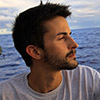 |
Jamie W. Becker
- Post-doc in Chisholm’s lab
- Massachusetts Institute of Technology (MIT)
- Research interest: Becker is working to develop model systems for investigating interactions between autotrophic and heterotrophic microorganisms in the sea, as he is broadly interested in how the rich functional diversity of marine microbes collectively cycles vast quantities of organic substrate. Using traditional physiological assays in conjunction with transcriptomics, he hopes to uncover new information regarding the metabolic relationship between Prochlorococcus and sympatric heterotrophic bacterioplankton, and extrapolate this information toward a better understanding of the complex interplay between autotrophic and heterotrophic processes in the marine environment. This work is being coupled to chemical analyses of organic matter produced by Prochlorococcus to provide additional insight into these interactions at the metabolome level.
- Keywords: microbial interactions, Prochlorococcus, transcriptomics, microbial physiology
- jamiewb@mit.edu
|
 |
Sara J. Bender
- Post-doc in Saito’s lab
- Woods Hole Oceanographic Institution (WHOI)
- Research interest: Bender is interested in the metabolic responses of eukaryotic phytoplankton to changes in macro-/micro- nutrient availability. Her research is motivated by the “paradox of the plankton,” and she uses a combination of growth studies, field work, (meta)transcriptomics, and more recently, (meta)proteomics, to highlight the different metabolic strategies utilized by evolutionarily distant phytoplankton in response to the same chemical environment. As a postdoctoral scholar in the Saito lab, her research involves both lab and field studies with a focus on trace metal metabolism in marine diatoms and the nuisance algae, Phaeocystis. Using molecular techniques, her research aims to understand niche differentiation among eukaryotic phytoplankton in the marine environment.
- Keywords: eukaryotic phytoplankton, physiology, metabolism, transcriptomics, proteomics
- sbender@whoi.edu
|
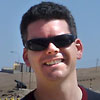 |
Paul Berube
- Post-doc in Chisholm’s lab
- Massachusetts Institute of Technology (MIT)
- Research interest: Berube studies the physiology and ecology of the cyanobacterium Prochlorococcus, the smallest and most abundant photosynthetic cell on the planet. Prochlorococcus offers several unique advantages for addressing questions in microbial ecology, including broad distribution in a well characterized environment, a collection of several physiologically distinct strains, and the availability of environmental and strain specific sequence data. Berube’s focus is on nitrogen acquisition strategies of Prochlorococcus and how these adaptations influence the ecology of this globally important microorganism.
- Keywords: microbial diversity, ecology, cyanobacteria, nitrogen cycle, Prochlorococcus, genomics
- pmberube@mit.edu
|
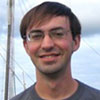 |
Steven Biller
- Post-doc in Chisholm’s lab
- Massachusetts Institute of Technology (MIT)
- Research interest: Biller's research interests center on the ecology and evolution of the marine cyanobacterium Prochlorococcus. His work in the Chisholm lab at MIT involves a combination of genomic, transcriptomic and physiological studies to better understand how Prochlorococcus is able to both acclimate and adapt to different environmental niches in the oceans.
- Keywords: cyanobacteria, genomics, evolution, transcriptomics
- sbiller@mit.edu
|
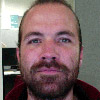 |
Rogier Braakman
- Post-doc in Chisholm’s lab
- Massachusetts Institute of Technology (MIT)
- Research interest: Braakman is broadly interested in the mechanisms of metabolic evolution. Metabolism forms a global biochemical network that mediates the biogeochemical cycles and supplies the building blocks and energy for all cells. Reconstructing its evolution helps us understand how chemistry constrains living systems. After previously focusing on the emergence and early evolution of core metabolism, he is currently studying how metabolic evolution may constrain the structure and dynamics of large-scale ecosystems in the modern ocean. In this work he uses Prochlorococcus, the most abundant CO2-fixer in the (sub)tropical oceans, as a model system.
- Keywords: metabolic evolution, evolutionary systems biology, ecology, biogeochemistry
- braakman@mit.edu
|
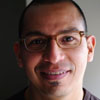 |
Gonzalo Carrasco
- Post-doc in Boyle’s lab
- Massachusetts Institute of Technology (MIT)
- Research interest: Carrasco’s main interest is the study of trace metals of biogeochemical importance, focusing on their concentration, chemical speciation and isotopic fractionation in water, sediments and biological records. At ALOHA, he wants to corroborate preliminary studies that show specific water masses bring organic ligands from the West Pacific and hydrothermal vents, their reported presence in
sub-surface waters related to a local maxima, their potential relationship to specific phytoplankton species, and possibly also to get some insight into their size and chemical nature.
- Keywords: trace metals, chemical speciation, organic ligands
- gcarrasc@mit.edu
|
 |
Julia Diaz
- Post-doc in Dyhrman’s lab
- Woods Hole Oceanographic Institution (WHOI) and Columbia University
- Research interest: Diaz explores the role of microorganisms (phytoplankton and heterotrophic bacteria) in globally-relevant biogeochemical processes, including the cycling of reactive oxygen species (ROS) and the vital nutrient phosphorus. With support from an NSF OCE postdoctoral research fellowship, she is currently examining microbial metabolism of exogenous and endogenous pools of polyphosphate, an environmentally ubiquitous biopolymer. Diaz is interested in using her research as a platform for broadening participation in ocean sciences, as well as advancing environmental literacy and natural conservation.
- Keywords: polyphosphate, phosphorus, ROS, phycology, geomicrobiology
- jdiaz@whoi.edu
|
 |
Sara Ferrón
- Post-doc in Karl’s lab
- University of Hawai‘i at Manoa (UH Manoa)
- Research interest: Ferrón’s research is focused on understanding the marine carbon cycle and the biogeochemical cycling of biogenic gases in the ocean. She is particularly interested in quantifying net community production (NCP) in the ocean, which is the balance between photosynthesis and respiration, and influences how much carbon is exported to the deep ocean. To quantify NCP in the North Pacific Subtropical Gyre, measurements of the ratio of dissolved oxygen (O2) and the inter gas argon (Ar) are being made at the Hawaii Ocean Time Series site, Station ALOHA, on a monthly basis. Ferrón is also interested in studying the main processes controlling the concentrations of methane and nitrous oxide in the ocean.
- Keywords: dissolved gases, marine biological pump, marine carbon cycle, net community production, O2/Ar, methane, nitrous oxide
- sferron@hawaii.edu
|
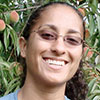 |
Kristina Fontanez
- Post-doc in DeLong’s lab
- Massachusetts Institute of Technology (MIT)
- Research interest: Fontanez is interested in the composition and function of particle-associated microbial communities. She is using metagenomics and metatranscriptomics to examine the molecular basis of particulate organic carbon resource partitioning occurring during microbial blooms.
- Keywords: transcriptomics, marine particle degradation, metagenomics
- fontanez@mit.edu
|
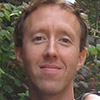 |
Scott Gifford
- Post-doc in DeLong’s lab
- Massachusetts Institute of Technology (MIT)
- Research interest: Gifford studies bacterial-dissolved organic carbon (DOC) interactions in the open ocean and coastal environment. His work is particularly focused on identifying the genes and metabolic pathways contributing to the flux of carbon through the marine environment using both culture and culture-independent methodologies.
- Keywords: DOM, culturing, transcriptomics, carbon cycle, ecophysiology, metabolism
- sgifford@mit.edu
|
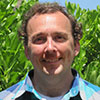 |
Stuart Goldberg
- Post-doc in Church’s lab
- University of Hawai‘i at Manoa (UH Manoa)
- Research interest: Goldberg studies dissolved organic carbon (DOC) and nitrogen (DON) cycling by heterotrophic bacterioplankton in marine and freshwater ecosystems. His work investigates the biogeochemistry of DOC and DON at Station ALOHA.
- Keywords: DOC, DON, bacterioplankton, bioavailability
- stuartg@hawaii.edu
|
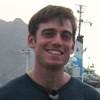 |
Christopher Hayes
- Post-doc in Boyle’s lab
- Massachusetts Institute of Technology (MIT)
- Research interest: Hayes is using natural radioisotope distributions in the ocean to quantify chemical fluxes related to aerosol mineral dust. The trace metal nutrients this dust releases, such as iron, are important parameters for regulating marine phytoplankton productivity. He is currently pursuing a time-series study in the North Pacific to document changes in lithogenic and radiogenic thorium isotopes. The goal is to relate these data to variability in mineral dust flux and trace metal delivery, potentially on timescales from seasons to several decades.
- Keywords: biogeochemical cycles, aerosol dust, trace metals, thorium
- cthayes@mit.edu
|
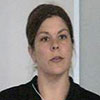 |
Maria T. Kavanaugh
- Post-doc in Doney’s lab
- Woods Hole Oceanographic Institution (WHOI)
- Research interest: Modeling pelagic ecosystem responses and feedbacks to environmental perturbation, requires an objective framework to (1) track responses of unique, contiguous systems in time and (2) scale “snapshots” of data collected in a typical oceanographic research expedition to that which is resolved by satellites or global marine ecosystem models (MEMs). With this in mind, Kavanaugh's research takes a combined approach, integrating in situ observations into MEMs and satellite observations with an objective hierarchical seascape classification. The seascape framework allows Kavanaugh’s team to identify unique systems and conduct comparative analyses, but also to identify when the boundaries of these systems are shifting with seasonal or interannual forcing. With this combined approach, Kavanaugh and collaborators hope to not only improve model parameterization, but also address critical ecological questions related to the effects of climate on pelagic ecosystem complexity and diversity.
- Keywords: pelagic seascape ecology and biogeochemistry; phytoplankton diversity and biogeography
- mkavanaugh@whoi.edu
|
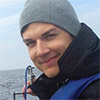 |
Markus Lindh
- Post-doc in Church’s lab
- University of Hawai‘i at Manoa (UH Manoa)
- Research interest: Lindh is focusing on the spatio-temporal population dynamics of bacterioplankton in a variety of habitats such as the dynamics associated with specific phytoplankton species, the remineralization of particulate organic matter (POM), Pacific Ocean horizontal and vertical profiles over the Clarion-Clipperton fracture zone, and transects performed to and from station ALOHA. He is using a combination of 16S rDNA amplicon sequencing and theoretical ecology to determine the key players of communities linked with biogeochemistry and relevant metapopulation and metacommunity models.
- Keywords: microbial ecology, biogeochemistry, spatio-temporal community dynamics, community interactions, 16S rDNA, bioinformatics, theoretical ecology, metapopulation, metacommunity
- markusvlindh@gmail.com
|
 |
Katherine Mackey
- Post-doc in Saito’s lab
- Woods Hole Oceanographic Institution (WHOI)
- Research interest: Mackey’s research focuses on phytoplankton photosynthesis, the role of phytoplankton in biogeochemical cycles, and the mechanisms they use to acclimate and adapt to environmental changes. She studies how photosynthetic adaptations allow different phytoplankton groups to dominate different areas of the ocean, particularly in dynamic environments subject to changing environmental conditions. As a postdoc in the Saito Lab at WHOI, Mackey uses proteomics to quantify iron-rich photosynthetic proteins in strains of Synechococcus from different ocean regions, and measures fluorescence to characterize photophysiology. Together these approaches link changes in protein abundance to changes in photosynthetic fitness and growth in laboratory cultures and natural populations of phytoplankton.
- Keywords: photosynthesis, picocyanobacteria, Synechococcus, proteomics, fluorescence
- kmackey@whoi.edu
|
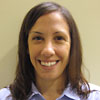 |
Olivia Nigro
- Post-doc in Steward’s lab
- University of Hawai‘i at Manoa (UH Manoa)
- Research interest: Nigro is interested in examining the environmental controls on the abundance and evolution of marine bacterioplankton. Specifically, Nigro is investigating vibrios and their relationship with the coastal environment, as well as interactions between vibrios and their viruses.
- Keywords: Vibrio, virus, bacterioplankton, population dynamics, evolution, phage-host interactions Email
- onigro@hawaii.edu
|
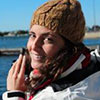 |
- Post-doc in Dyhrman’s lab
- Columbia University
- Research interest: Rouco-Molina is interested in studying the interaction of phytoplankton organisms with their geochemical environment. She examines the factors determining their growth and the strategies allowing them to adapt to different environmental conditions. She is also interested in understanding the factors driving phytoplankton niche differentiation in the ocean. Exploring the physiological ecology and biogeography of present phytoplankton communities is crucial to better understand the response of these communities to future global change scenarios. Her current perspective involves the combination of both physiological and molecular techniques to investigate phytoplankton nutrient physiology in field communities, with a special attention to phosphorus and nitrogen metabolism. She is also particularly interested in ocean acidification studies. Her research as a Postdoctoral Fellow with C-MORE focuses on investigating the physiological ecology of Trichodesmium sp. populations in the ocean.
- Keywords: Phytoplankton physiological ecology, molecular biology, environmental change
- mroucomolina@whoi.edu
- sites.google.com/site/cmoreroucomolina/
|
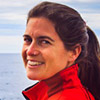 |
Sarah-Jeanne Royer
- Post-doc in Karl’s lab
- University of Hawai‘i at Manoa (UH Manoa)
- Research interest: Royer’s research is focusing in understanding the marine carbon cycle and the biogeochemical cycling of reduced gases in the ocean. She is particularly interested in assessing the short-term variability of net community production (NCP) in the North Pacific Subtropical Gyre using membrane inlet mass spectrometry (MIMS). Royer is currently developing instrumentation to map the distribution of the ratio of dissolved oxygen (O2) and the inert gas argon (Ar) to allow high frequency measurements from the coast of Hawai‘i to station ALOHA along with the assessment of in situ diel changes of O2/Ar ratio in the water column on station. Royer is also interested in studying the size distribution of plastic debris from the coast to station ALOHA.
- Keywords: dissolved gases, marine carbon cycle, net community production, O2/Ar, plastic debris, reduced gas chemistry
- sjroyer@hawaii.edu
|
 |
Adrian Sharma
- Post-doc in DeLong’s lab
- Massachusetts Institute of Technology (MIT)
- Research interest: Sharma’s research uses experimental metatranscriptomics to examine the metabolic pathways, microbial community dynamics and chemical transformations associated with microbial utilization of dissolved organic matter in the sea. His project represents a multidisciplinary collaboration with the Repeta lab and monitors the microbial and biogeochemical changes over time in experimental microcosms treated with a high molecular weight dissolved organic matter amendment.
- Keywords: metatranscriptomics, microbial ecology, microbial metabolism, carbon cycling
- aksharma@mit.edu
|
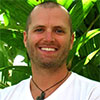 |
- Post-doc in DeLong’s lab
- University of Hawai‘i at Manoa (UH Manoa)
- Research interest: Pedler Sherwood’s research is focused on understanding the chemical properties of dissolved organic matter (DOM) that facilitate or inhibit microbial degradation, the genetic and metabolic pathways required to catalyze those biochemical reactions, and the role of microbial community structure in regulating the rate and efficiency of DOM cycling in the ocean. His research employs a combination of techniques including field observations and laboratory-based model systems, and utilizes advanced methods from the fields of analytical chemistry, genomics, and microbial ecology.
- Keywords: bacteria, bacterial physiology, biogeochemistry, carbon cycling, dissolved organic matter, microbial ecology, microbial loop
- byron8@hawaii.edu
- sites.google.com/site/cmoresherwood/
|

























